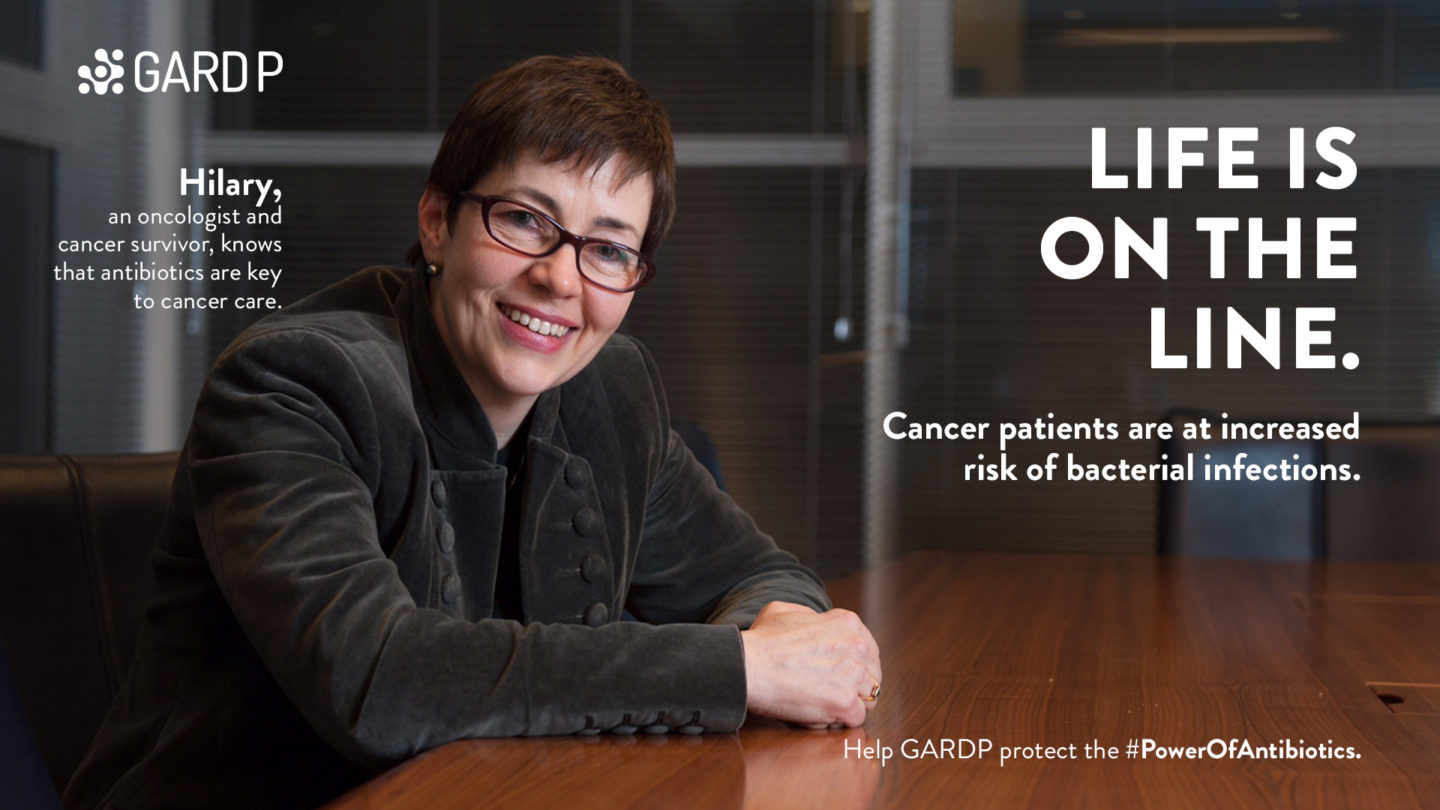A doctor-turned-patient’s perspective on cancer care and antimicrobial resistance
It was March 2006. Dr Hilary Thomas had noticed a small lump in her breast. Two days later, doctors told her that it was in fact an aggressive, localized tumour that required urgent treatment.
As an oncologist in the UK, Hilary had treated thousands of patients for breast and gynaecological cancers over the years. But nothing prepared her for her own cancer diagnosis.
“Until you’re there, you can’t stand in those shoes. You can’t possibly imagine what it’s like to suddenly realize, I might die soon. I might not see my kids grow up,” she said.
“My children were 13 and 16 at the time, and I remember thinking, will I see them go to university? Will I see their 21st birthdays? The impact of suddenly coming face to face with your own mortality was a much bigger thing than I had realized.”
Doctors put Hilary on an aggressive treatment regimen that included chemotherapy every two weeks rather than every three weeks.
While the treatment was effectively killing the cancer, it was also killing her infection-fighting white blood cells. So as part of her accelerated treatment, Hilary was given a drug that is meant to boost the production of white blood cells in order to strengthen the immune system.
Still, the threat of a bacterial infection loomed large.
“I saw my white count was going down and I was very aware of the risk of sepsis,” said Hilary.
And for good reason: one US study found that sepsis, a life-threatening bloodstream infection, is associated with 8.5% of all cancer deaths. As many as one in five cancer patients will need antibiotics to treat bacterial infections during their cancer treatment. Some patients will even receive antibiotics prophylactically (i.e., before an infection actually occurs).
Thankfully, Hilary completed her treatment successfully without any complicating infections.
Since then, she has watched the rise of drug-resistant infections with a wary eye. And she is not alone: a survey of 100 oncologists in the UK revealed that 95% are worried about the consequences that antibiotic resistance will have on their ability to care for cancer patients, who are more likely than other patients to be infected by multidrug-resistant bacteria.
Now as chief medical adviser and partner in PA Consulting, a life sciences and healthcare consulting firm, Hilary continues to raise public awareness about cancer care and antimicrobial resistance.
‘‘I think that the key to antimicrobial resistance is public awareness. We need to be having conversations with people across society about the dangers of antimicrobial resistance for cancer patients and others. We need to reduce the pressure on doctors to prescribe antibiotics, and the public’s expectation of getting them, so we conserve them for situations where they’re really needed. Because lives really do depend on it,” Hilary said.
